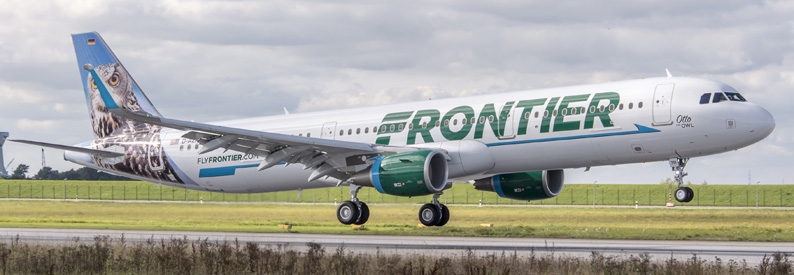Colorado’s Frontier Airlines takes off with $570mn IPO

Frontier Airlines (F9, Denver Int’l) parent Frontier Airlines Holdings raised USD570 million in an Initial Public Offering (IPO) on March 31, it said, pledging that it and some of its existing stockholders would combine to offer 30 million shares priced at USD19 each, giving it a valuation of about USD4 billion. As previously reported, the company filed a registration statement last month outlining its intention to pursue the IPO and started trading on the Nasdaq Global Select Market on April 1 under the ticker ULCC. Frontier Airlines CEO Barry Biffle and other company representatives rang the stock exchange’s opening bell on Thursday morning as the Denver Int’l-based low-cost carrier’s long-planned public stock offering finally took off. It had first registered with the United States Securities and Exchange Commission (SEC) to go public in spring 2017. After deducting funds going to the other stockholders and other expenses, the company projected that the offering would inject USD266 million into the airline. “It improves our financial stability, it strengthens the balance sheet, and I think it just punctuates and encapsulates all of the success we’ve had as a company,” Biffle told The Denver Post on March 31. “You’re in a situation where everybody wants to get back together and travel again, and they have the money to do so, so it’s a great time to be a domestic, leisure-focused airline. At the beginning of March, we went cash positive again.” Biffle also told Reuters on the same day that the Indigo Partners-owned company was already making money again – and flying more than it did in 2019.“Coming out of this, we’re in the best position we believe of anyone in the space, given our concentration in the domestic leisure business and our ability to make money with low fares,” he said. The company has said that it will use the IPO proceeds to fund growth and manage debt, including repaying some of the USD150 million in loans from the US government’s Covid-19 relief package. The pandemic-triggered aviation crisis led the carrier to burn about USD2 million in cash per day on average up until December 31.
